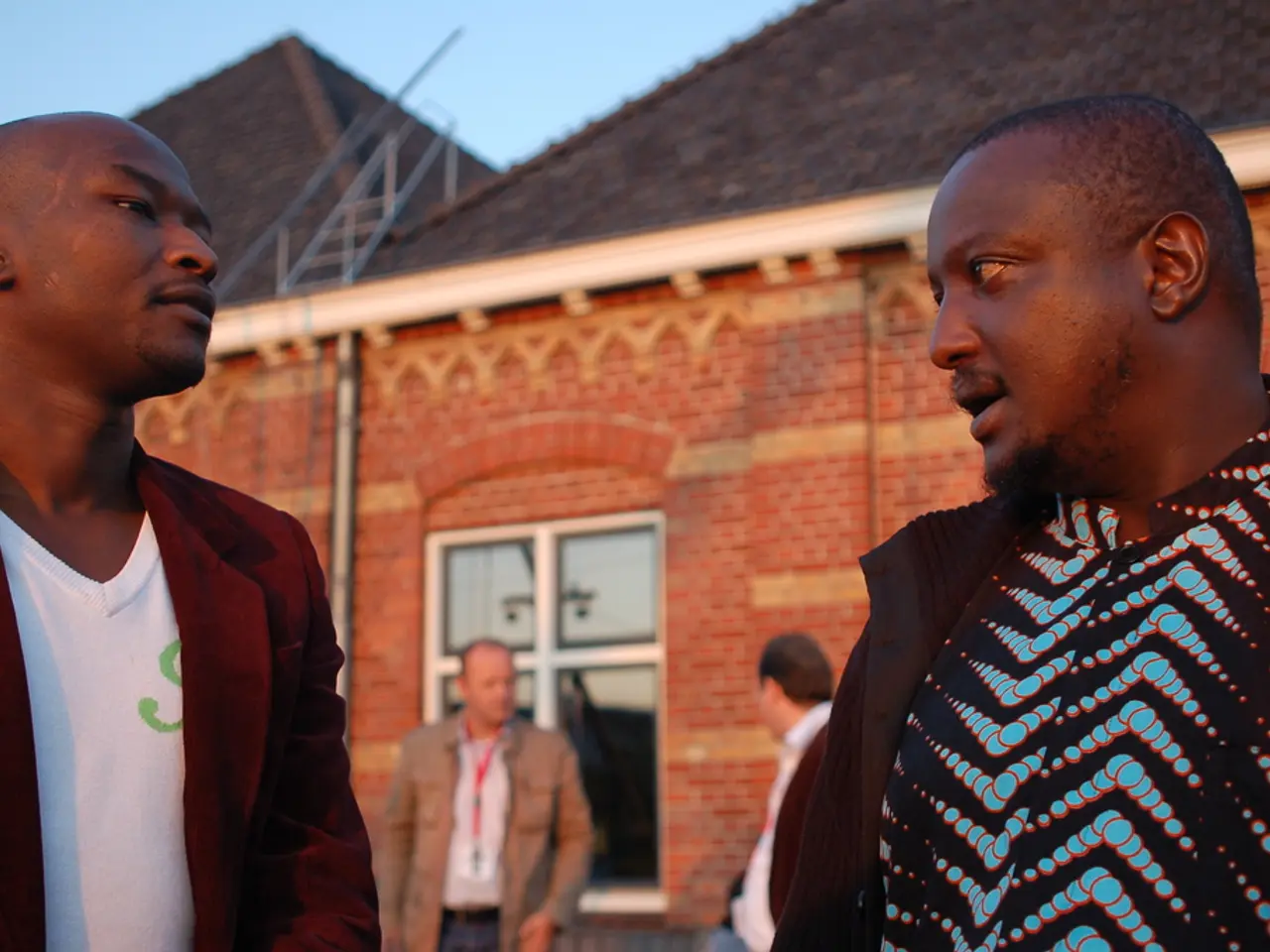African Policies Transforming from Physical Artifacts to Digital Implementations: The Importance of Leveraging Policies as Functional Instruments Rather Than Display Pieces
In a bold move towards digital inclusivity, Africa is witnessing a shift in its approach to digital policies. Policies aimed at bridging the digital divide are being implemented as utilities rather than assets, focusing on digital public infrastructure, affordable access, and inclusive ecosystem development.
One such initiative is Connect Rwanda, a collaboration between Rwanda’s Ministry of ICT and MTN Rwanda, launched in 2019. This project aims to increase smartphone penetration, particularly in rural and underserved areas, by collecting donated smartphones and redistributing them to poor families. This approach makes digital access a utility, accessible to all, rather than just an asset held by a few, directly addressing affordability and device access – key barriers to digital inclusion.
The African Union and regional bodies have also adopted comprehensive policy frameworks, such as the African Digital Compact, the Digital Transformation Strategy for Africa, and the Continental Artificial Intelligence Strategy. These blueprints develop digital infrastructure as inclusive platforms or utilities, encompassing secure, scalable, and inclusive digital public goods. They emphasise universal and affordable internet access, digital literacy, service platforms, and governance models that involve multistakeholder participation.
Cassava Technologies advocates for a holistic ecosystem approach, going beyond physical connectivity to deliver affordable access, suitable devices, secure platforms, and relevant skills. This approach ensures that connectivity translates into meaningful digital inclusion, enabling economic opportunities and preventing populations from being left behind in the digital age.
Regulatory and rights-based measures, like those introduced by the African Commission on Human and Peoples’ Rights, also play a crucial role. Resolutions promoting internet access as a right and pushing for regulations that guarantee equitable and meaningful access to information are essential in fostering trust and broader adoption.
These efforts collectively demonstrate effective digital policies in Africa that treat digital infrastructure and services as public utilities designed for equitable access and use. By making access affordable and widely available, creating inclusive regulatory frameworks, embedding digital literacy and skills development, and promoting multistakeholder governance, these policies significantly contribute to narrowing the continent’s digital divide.
However, the root problem lies in an asset class mentality that stifles innovation and leaves digital dreams unrealized. The value of a policy lies in its daily use, guiding decisions, shaping investments, and adapting to new realities. Oswald Osaretin Guobadia, a distinguished policy advisor with nearly three decades of experience driving digitalisation across Africa, emphasises this point. In his previous role as the Senior Special Assistant on Digital Transformation to the Nigerian President, he was instrumental in developing the Nigeria Startup Act.
Unfortunately, many policies languish on a shelf, unimplemented. Policies are often treated as symbols of progress, trophies to be displayed, rather than frameworks to be implemented. To overcome this, policies must be co-created, adapted, and measured, not just admired.
As we move forward, it is crucial to remember that the digital divide is not just a technical issue but a socio-economic one. Policies must address affordability, accessibility, and inclusivity to ensure that everyone, regardless of their location or socio-economic status, can reap the benefits of the digital age.
Sources: [1] Cassava Technologies. (2021). Holistic Ecosystem Approach. Retrieved from https://cassavatech.com/holistic-ecosystem-approach/ [2] African Union. (n.d.). African Digital Compact. Retrieved from https://au.int/en/sites/default/files/documents/37020-doc-african_digital_compact_en.pdf [3] Rwanda Utilities Regulatory Authority. (2019). Connect Rwanda. Retrieved from https://www.rura.rw/connect-rwanda/ [4] African Commission on Human and Peoples’ Rights. (2019). Declaration of Principles on Internet Rights and Freedoms in Africa. Retrieved from https://www.achpr.org/files/instruments/declaration-of-principles-on-internet-rights-and-freedoms-in-africa-english/declaration-of-principles-on-internet-rights-and-freedoms-in-africa-english.pdf
- Startups in Africa can benefit from inclusive investment in digital technology, encouraging innovation and the creation of digital products that cater to affordable mobile devices, thereby closing the digital divide.
- To foster education-and-self-development in rural and underserved areas, initiatives should aim to provide not only access to digital infrastructure but also promote digital literacy and the acquisition of relevant skills.
- The integration of digital technology in education can open up a world of opportunities, ensuring that every individual, regardless of location or socio-economic status, can participate in the digital transformation and reap its benefits.
- As technology continues to reshape economies, it is essential to ensure that digital payments become more accessible, secure, and affordable, facilitating greater financial inclusion for businesses and individuals.




